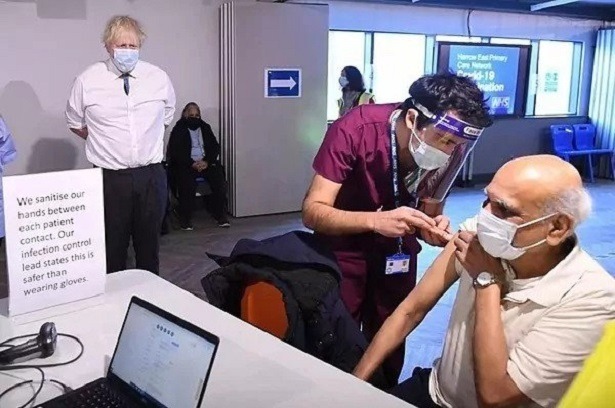
The European Union (EU) has backed down and has decided not to implement controls to prevent the entry of vaccines into Northern Ireland. Brussels had announced on Friday night the invocation of Article 16 of the Irish Protocol, included in the Brexit Agreement, to prevent Northern Ireland from being used as a back door for the entry of thousands of doses into the United Kingdom. Prime Minister Boris Johnson called for “urgent clarification of the EU’s actions” and Irish Prime Minister Micheál Martin harshly criticized the sudden reaction from Brussels. The two spoke by phone with the president of the European Commission, Ursula Von der Leyen, who shortly after decided to rectify.
EU sources acknowledged to The Guardian that the hasty decision to impose vaccine controls between the two Islanders had been a “mistake”. The announcement was made in the context of the European Commission’s decision to require export authorizations for doses manufactured on the continent, given the lack of supplies for the vaccination campaigns of the 27.The invocation of Article 16, just a month after the consummation of Brexit, has created a diplomatic conflict between London and Brussels.The EU intervention was condemned as “an incredible act of hostility” by Arlene Foster, Chief Minister of Northern Ireland. Unionist politics has asked Boris Johnson to unilaterally renounce the Irish Protocol, contained in the Brexit Agreement.
Article 16 of the Irish Protocol is essentially a safeguard to allow both the EU and the UK to act unilaterally in the event of “serious economic, social or environmental difficulties”. At the time of justifying its activation, the European Commission alleged that “the lack of supplies that threatens to interfere with vaccination campaigns in the member states” can be considered as “a serious social difficulty”.Interestingly, Arlene Foster herself had asked Johnson days ago to invoke Article 16 in the face of supply problems to Northern Ireland supermarkets due to Brexit. Foster was opposed in his day to the creation of “internal customs” that forces to establish controls in its ports to the merchandise coming from Great Britain. Although it is still legally part of the “customs territory” of the United Kingdom, Northern Ireland remains aligned with the rules of the single market to avoid the return to the “hard” border within the island.








